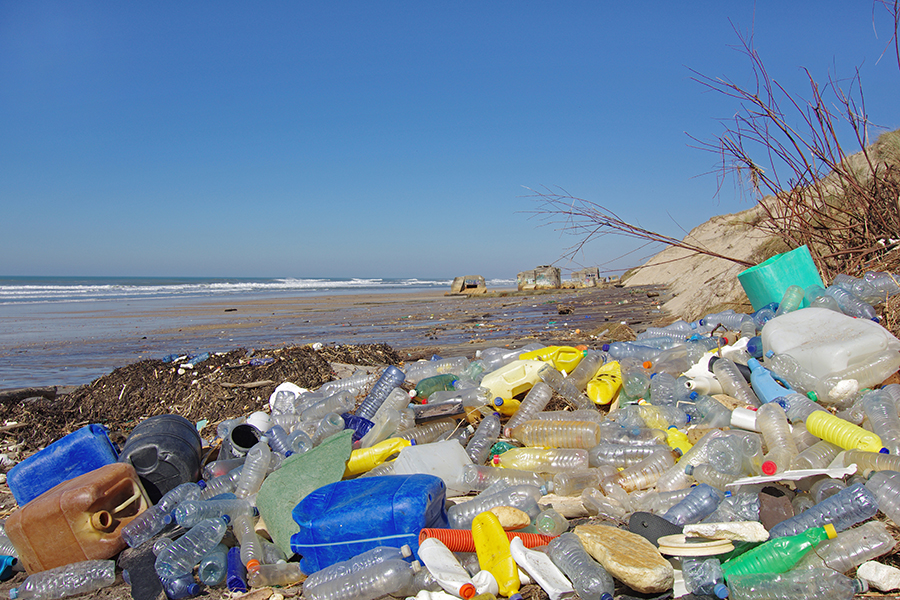
By Dr Johannes Lohse, Lecturer in Economics
The Department of Economics, University of Birmingham
As for all environmental problems, there is a problem of unknown unknowns, which could significantly increase the social costs of plastic pollution.
Plastic has come a long way. From being predicted a ‘great future’ in the 1967 film The Graduate, to making headlines as the source of significant environmental harm highlighted in films like Blue Planet II. The recent attention that plastic pollution has received isn’t surprising. Plastic pollution is more visible than other pollutants which are more harmful, such as PM2.5 or CO2, and plastic’s adverse effects on marine life create emotive pictures which strongly resonate with the public. Unsurprisingly, policy makers in the UK and elsewhere have therefore scrambled to add plastic pollution to their agendas.
Indeed, some of the numbers sound alarming; over the last five decades annual plastic production has increased by approximately 8 per cent per year totaling 380 million tonnes globally, whilst only 9 per cent of all plastic ever produced has been recycled. Instead of being recyclable, the largest fraction of plastic now produced is for single usage, such as food wrappers or drinks bottles. Of the 78 million tonnes of plastic packaging material, only 14 per cent is collected for recycling (and less than 2 per cent is fully recycled), whilst 55 per cent ends up in landfills or is incinerated. The remaining 31 per cent leaks into the environment where it often ends up on beaches or in the ocean. This not only causes problems of an aesthetic nature but they plastic debris also fragments into microplastics, which find their way into the marine food chain and one day could possibly end up on our dinner plates.
At the moment, the harmful effects on humans and marine life are still unknown and more research would be required to assess the exact damages caused by ingesting microplastics. Without this knowledge, it is hard to assess the social and environmental costs, with estimates ranging from $40billion to $139billion annually. Whilst this is a significant amount, it is still relatively minor compared to other more pressing environmental problems; air pollution is estimated to kill up to 9m people a year and the future costs of unmitigated climate change could be as high as 1 to 5% of global gross domestic product (GDP) per year for 4°C of warming. As for all environmental problems, there is a problem of unknown unknowns, which could significantly increase the social costs of plastic pollution. Even if the costs of plastic pollution should turn out to be smaller than other environmental problems, it is still welcome that policy makers are looking for solutions.
Single use plastic actually creates two separate problems. First, the production leads to carbon emissions that contribute to climate change. This negative externality could be addressed via a carbon tax levied on all carbon emissions – including those from producing plastic. Such policy would have the effect of increasing the price of plastics and thereby changing production and consumption patterns, just as a small 5p charge on plastic bags did. Proposals to simply ban the use of plastic packaging could backfire since substitute materials are typically heavier – leading to more emissions from shipping or being more energy intensive to produce.
Policies that increase the plastic retrieval quota would help to prevent leakage into marine environments. In the UK, any initiative that provides an incentive for returning plastic to an appropriate collection facility could potentially be effective with consumers. For instance, other European countries, as well as California, have introduced deposit schemes that have had a significant impact on the retrieval rates of plastic bottles, even though the effects on actual recycling rates are more moderate.
Although Western countries can certainly do more to prevent plastic from leaking into oceans, the key to a solution lies in preventing the damage being done in Asia’s fast-growing economies. There, consumption rates of the rapidly-growing middle class have surpassed the public capacities for waste collection and treatment. A recent study found that 80 per cent of all plastic that ends up in the ocean emerges from only ten rivers, eight of which are located in Asia. Thus, any credible policy to prevent leakage has to give assistance to developing waste treatment capacities in Asia and in this respect, the 20m pledged by the UK government is a step in the right direction.
